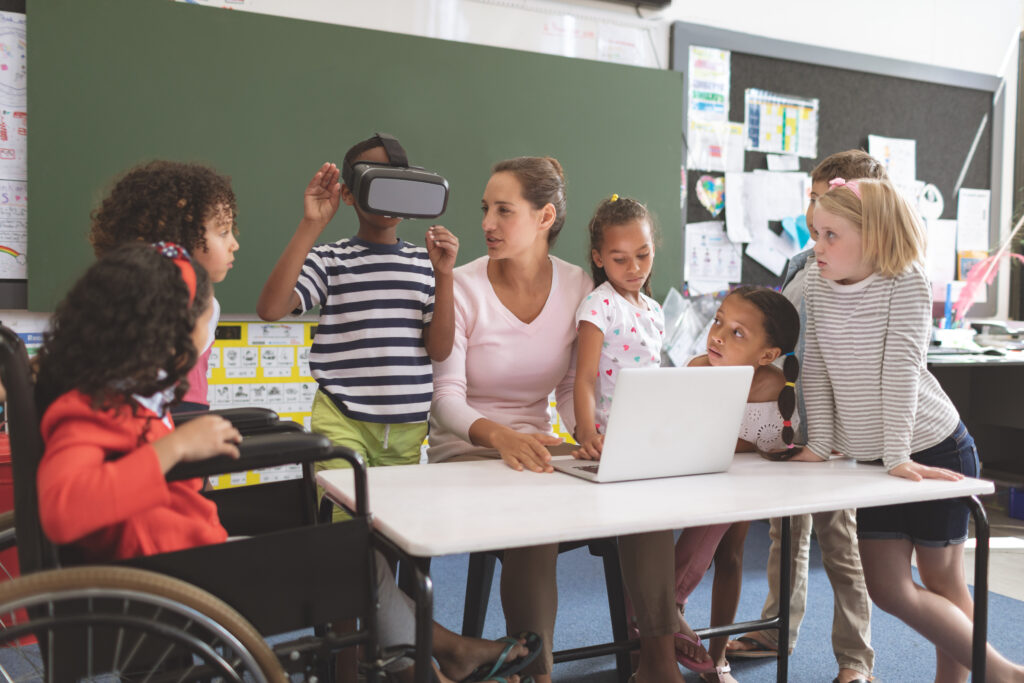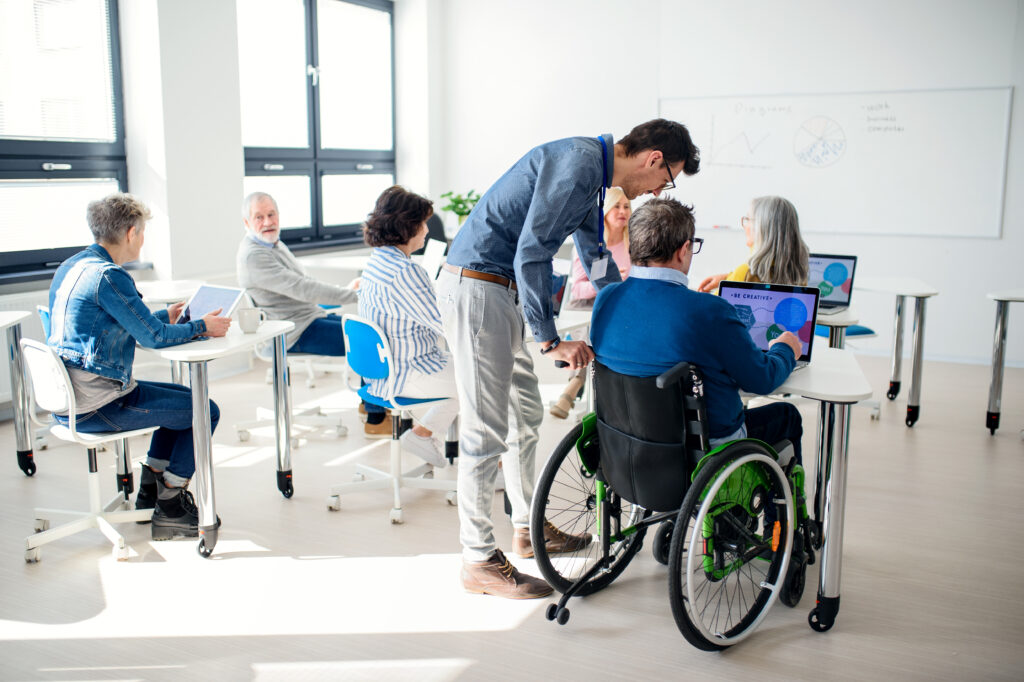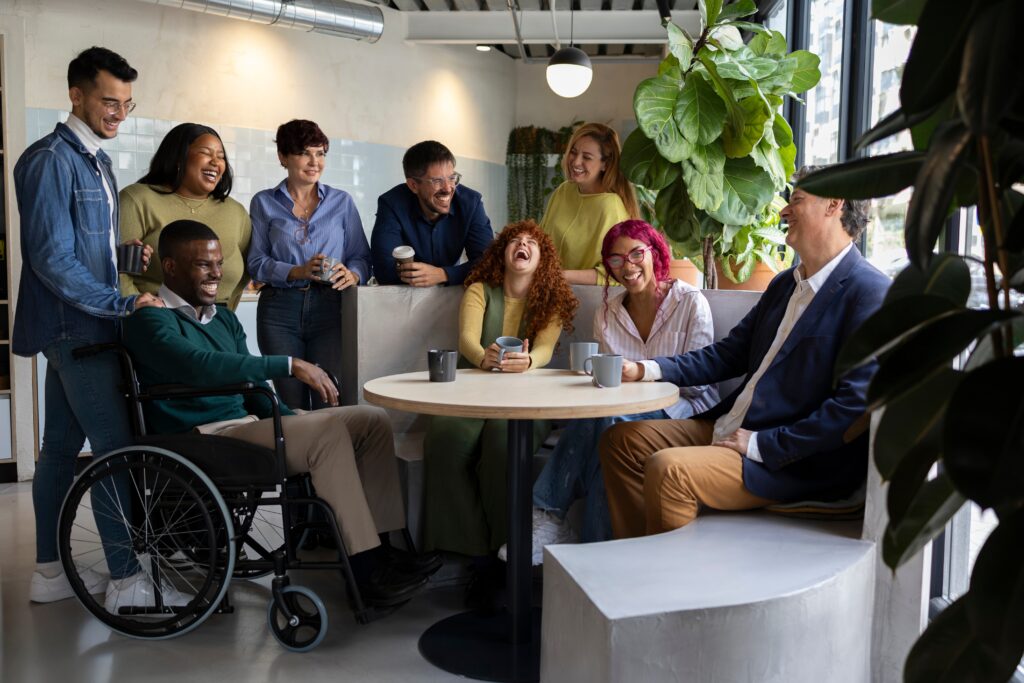
Disability, Technology and Trust: Building the Skilled Workforce for Independent Living
By Amarjit Dhanjal Thursday 6th November 2025The Royal Society’s Disability and Technology Report (2025) offers an ambitious vision for a world where digital innovation enhances independence, inclusion, and equality. But as the report makes clear, technology’s potential will only be realised when systems, policies, and people align behind it.
For OCN London, whose accredited qualifications in Trusted Assessor, Assisted Living and Assistive Technology already underpin professional standards in housing adaptations and inclusive techniques and technologies, the report provides both validation and opportunity. Its six recommendations, spanning data, design, affordability, and digital literacy, outline a roadmap that OCN London’s existing and emerging qualifications are uniquely placed to support.
Rethinking Disability Data
The report’s first recommendation calls for a shift in national statistics — away from binary measures of disability identity and toward data on functional challenges and limitations.
This change might sound technical, but its implications are profound. Current approaches often rely on whether people identify as disabled, or whether they appear in medical registries. Both models underrepresent individuals who face functional barriers — for instance, older people who experience sight or mobility difficulties but do not consider themselves disabled.
Functional data would capture how people interact with the world, not just how they identify. It would enable policymakers and service providers to target resources where they are most needed — from urban design to education, healthcare, and employment.
In practice, this approach would also enhance the planning of assistive and adaptive services. For OCN London, such data-driven insights could strengthen how qualifications like Trusted Assessor are deployed — ensuring that professionals are trained to respond to the actual range of needs in local populations, not just those captured in existing health or social care categories.
Recognising Smartphones as Assistive Technology
The report’s second recommendation urges governments to recognise the smartphone as a legitimate form of assistive technology (AT).
While often viewed as mainstream consumer tech, smartphones are now critical tools for accessibility — offering features like voice-to-text, screen magnification, captioning, and navigation assistance. Yet, disabled people are statistically less likely to own them. Globally, 4.6 billion people have smartphones, but ownership among disabled people lags significantly behind.
This matters because smartphones often serve as the interface for other digital assistive technologies — from smart home systems to wearable health devices.
Recognition of smartphones as assistive tech could unlock funding, inclusion in health coverage schemes, and design improvements. For OCN London, this reinforces the need to prepare professionals who can evaluate and configure mainstream technologies for accessibility purposes.
Accredited learning in Assistive Technology can ensure that practitioners are trained not just to install specialist devices, but also to help individuals adapt the everyday technologies that increasingly shape independence.

Designing with, not for, Disabled People
The third recommendation is a call for inclusive design. Disabled people, the report argues, should be “meaningfully involved in the design and development of digital products and services from the outset.”
This is both ethical and practical. Technologies are more effective when co-designed with those who will use them. But achieving genuine co-production requires changes in education, recruitment, and training. The report even suggests creating new design modules in colleges and universities that are accessible and attractive to disabled students.
Here, OCN London’s expertise in vocational and inclusive curriculum design becomes particularly relevant. Accrediting qualifications that integrate co-design principles could help reshape how professionals in IT, creative industries, and health technology learn to embed accessibility.
Moreover, as inclusive design becomes a mainstream expectation, there will be growing demand for cross-disciplinary credentials that link assistive technology with digital design, software development, and social care — a space OCN London is ideally placed to lead.
Making Assistive Technologies Affordable and Sustainable
Affordability is a recurring theme. The fourth recommendation highlights that disabled people are, on average, twice as likely to be unemployed and face over £1,000 in additional monthly costs to achieve the same standard of living as non-disabled households.
Digital assistive technologies (or DigATs, as the report calls them) are often expensive, fragmented, and incompatible across systems. The report calls for collaborative initiatives between governments, technology companies, and research funders to promote low-cost, interoperable, and sustainable AT.
This agenda dovetails with OCN London’s commitment to accessible education and qualification design. Just as technology must be affordable, so must the training that supports it. Through modular, flexible, and stackable pathways — including microcredentials — OCN London can help ensure that upskilling in AT and accessibility is within reach for employers, carers, and community practitioners alike.
Furthermore, sustainability is not just environmental but educational: ensuring that learning and skills evolve alongside technological change. Accreditation ensures continuity and quality in a fast-moving sector.
Balancing Digital and Human Access
One of the report’s most striking recommendations concerns digital exclusion. As services move online — from banking and healthcare to public transport — many disabled people risk being left behind. Recommendation 5 urges service providers to “consider the social impact of replacing analogue services with digital alternatives.”
For many, analogue or face-to-face options remain essential, whether due to sensory, cognitive, or economic barriers. The report gives the example of touchscreen payment devices that unintentionally exclude people with vision impairments.
OCN London’s Trusted Assessor qualification is built around precisely this kind of holistic awareness — combining technical understanding with human empathy and ethical judgement. Trusted Assessors are trained to consider how people interact with their environment, and how design changes may inadvertently create barriers.
The same principle applies in digital settings. Training that cultivates these competencies ensures professionals can identify not only what technology enables, but also whom it might exclude — and design inclusive alternatives accordingly.
Building Digital Skills for Disabled People and Carers
The final recommendation may be the most actionable: governments should ensure that disabled people and carers are equipped with the skills to use both current and future digital assistive technologies effectively.
The report warns that developing technology alone is not enough — training and confidence are critical. It calls for accessible education across all ages, from schools to community organisations, and for skills programmes that reach unpaid carers as well as professionals.
This aligns directly with OCN London’s Assistive Technology qualifications, which already provide structured learning on assessing needs, selecting tools, and supporting ongoing use. But the report also points to an opportunity: to extend such training beyond formal care into wider community and educational settings.
Digital literacy, accessibility awareness, and confidence in using everyday technologies are increasingly core life skills. OCN London’s approach — accredited, inclusive, and practical — provides a ready-made framework for delivering that capability nationally.

A Shared Responsibility
Across its six recommendations, the Royal Society’s report highlights one central truth: technology cannot achieve inclusion by itself. It must be underpinned by skilled people, robust data, inclusive design, and equitable access.
For OCN London and within our remit as an awarding organisation, accreditation is the thread that binds these together. It gives learners, employers, and service users confidence that training is meaningful, standards are consistent, and professional competence is recognised.
As the UK looks to harness the potential of digital assistive technologies, OCN London’s role as an awarding organisation — combining social purpose with regulatory assurance — positions it as a key enabler of the report’s vision. By embedding accreditation in every stage of the assistive technology and housing adaptation journey, OCN London helps ensure that innovation translates into independence, and technology becomes an instrument of empowerment rather than exclusion.













